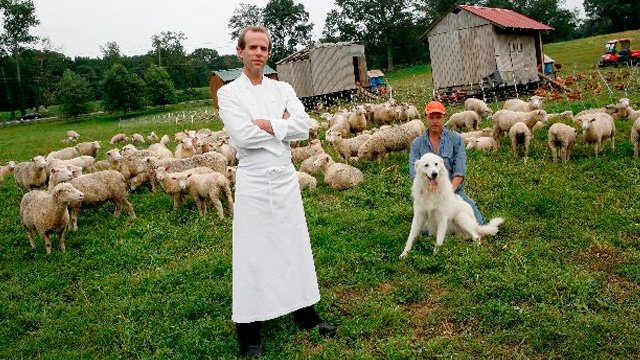As the brainchild Blue Hill at Stone Barns, Dan Barber knows a thing or two about the farm-to-table movement. Diners at the restaurant, which sits on a farm along the Hudson River, are served food that’s harvested on the farm year-round. It’s a great model, one that we like so much that we partnered with Stone Barns for our Mobile Kitchen Classroom project.
But Barber thinks there’s a problem with farm-to-table: it isn’t working. He discussed the movement’s shortcomings in a New York Times op-ed from last weekend:
More than a decade into the movement, the promise has fallen short. For all its successes, farm-to-table has not, in any fundamental way, reworked the economic and political forces that dictate how our food is grown and raised… In the last five years, we’ve lost nearly 100,000 farms (mostly midsize ones)… Despite being farm-to-table’s favorite targets, corn and soy account for more than 50 percent of our harvested acres for the first time ever. Between 2006 and 2011, over a million acres of native prairie were plowed up in the so-called Western Corn Belt to make way for these two crops, the most rapid loss of grasslands since we started using tractors to bust sod on the Great Plains in the 1920s.
If we really care about changing our food system to feed a growing world, Barber believes we’re going to need a true revolution. And he outlines his prescription in a new book, The Third Plate: Field Notes on the Future of Food, that was over a decade in the works.
The Third Plate reimagines American farming not as a romantic return to simpler times but as a smart, modern version of it. Barber wants to change our expectations, from emphasizing the beef to celebrating the vegetable. And he acknowledges that to do so, those veggies better be pretty tasty.
In clear language, Dan explains concepts like the interlocking microenvironment of soil, and how the billions of microorganisms inside create a volatile yet balanced conditions for growing food. Meanwhile he introduces passionate oddballs like Eduardo Sousa, the man who created a system of “natural” foie gras that doesn’t involve force-feeding the geese.
The book is an important addition to the sustainability discussion from someone who knows it better than most. A must-read.
Photo via
